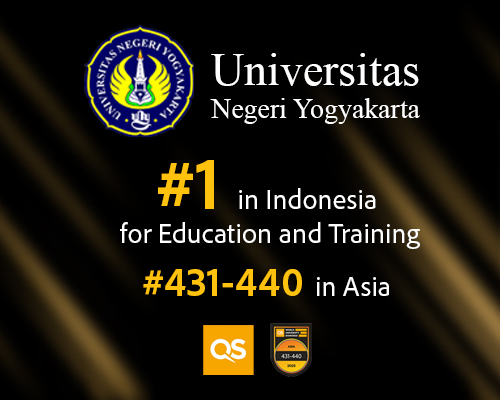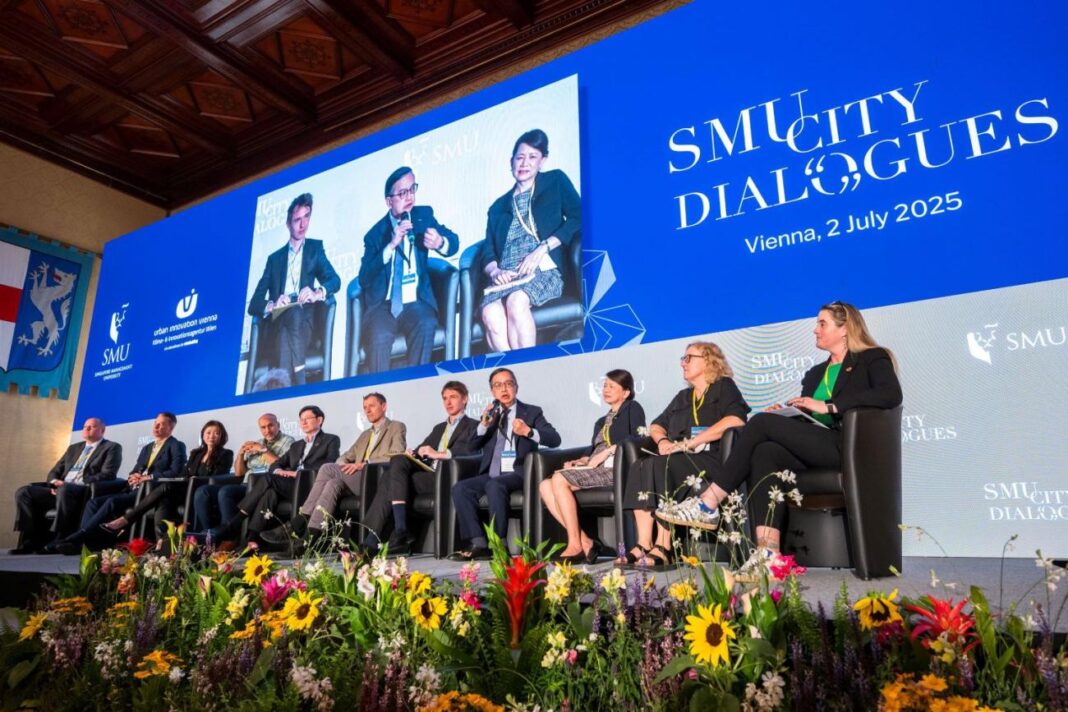Have you ever wondered what it really takes for a city to bounce back from crisis and thrive in an uncertain world? Urban leaders from across the globe gathered in Vienna to tackle this very question, and their insights might surprise you.
Global experts at SMU City Dialogues Vienna: Urban resilience requires trust, equity and ‘smart enough’ solutions
As a partner event of the Mayors Forum of the World Cities Summit 2025, the fourth edition of SMU City Dialogues brought together urban innovators, policymakers and academics in Vienna City Hall on July 2, 2025. Meanwhile, this collaborative effort between Singapore Management University (SMU) and Urban Innovation Vienna (UIV) drew over 100 attendees from 20 countries, representing more than 20 universities and 30 private and public organisations.
Setting the stage for urban transformation
The event opened with a welcome address by SMU Provost Professor Alan Chan, followed by remarks from Mr Melvyn Ong, Permanent Secretary (Development) at Singapore’s Ministry of National Development. For example, the keynote address delivered by Mr Jürgen Czernohorszky, Executive City Councillor for Climate, Environment, Democracy and Personnel of the City of Vienna, set the tone for discussions centered around the guiding question: “What is the value of urban resilience?”
Three pillars of urban resilience explored
As a result of the diverse expertise present, the programme featured three thematic tracks, each addressing a core dimension of urban resilience:
- Finance and Public-Private Partnerships
- Social Equity and Environmental Sustainability
- Innovation and Technology
These parallel discussions concluded with a joint key takeaway session led by SMU professors Winston Chow and Orlando Woods, alongside UIV’s Johannes Lutter. Consequently, their insights revealed that urban resilience isn’t merely a buzzword, but a lived responsibility requiring trust, participation, and context-sensitive action.
Beyond survival: The thriving city mindset
Professor Winston Chow, Co-Chair of the IPCC Working Group II and Professor of Urban Climate at SMU, emphasised a crucial distinction in urban planning approaches. “Resilience isn’t just about surviving, it’s about thriving. We need to align financial systems with social goals, build trust through good governance, and empower communities to shape their own future.”
“Public-private partnerships can be powerful tools, but they are not universal solutions. They require competent, stable governments, extensive due diligence and clear alignment of interest.” – Professor Winston Chow
‘Smart enough’ cities over smart cities
SMU Professor of Geography Orlando Woods, who also serves as Director of the SMU Urban Institute, challenged conventional wisdom about technology-driven urban solutions. While his group explored innovation and technology, much of the discussion shifted toward structural problems that technology alone cannot resolve.
“It’s not about being a smart city. It’s about being a smart enough city. Smart enough relative to the context, the specific problem we are trying to solve with the technology that we have.” Furthermore, he cautioned that overreliance on data and digital tools often leads to oversimplified responses while masking deeper systemic issues like inequality, mental health, or infrastructural neglect.
Community-centered resilience strategies
Dr Johannes Lutter, Senior Urban Planner at Urban Innovation Vienna, outlined three key messages on making resilience more socially inclusive and locally grounded. “Given our limited resources, it is essential that we take targeted action—focusing in particular on those who are most vulnerable. To do so effectively, we must have a clear understanding of who is at risk.”
Additionally, he stressed the importance of genuine collaboration: “We must restore agency to communities—not by shifting responsibility onto them and stepping back, but by fostering a structured dialogue between governments and communities, ensuring genuine collaboration between public institutions and the people they serve.”
Key takeaways for future-ready cities
The Vienna dialogue revealed that sustainable urban resilience demands more than technological sophistication or financial resources. Instead, it requires a delicate balance of trust-building, community empowerment, and context-appropriate solutions. As cities worldwide face mounting challenges from climate change to social inequality, the insights from this gathering offer a roadmap for creating truly resilient urban communities.
For more insights on urban innovation strategies, explore research from the UN’s climate action initiatives. As these experts demonstrated, the path forward isn’t about having all the answers—it’s about asking the right questions and empowering communities to find solutions that work for their unique contexts.




